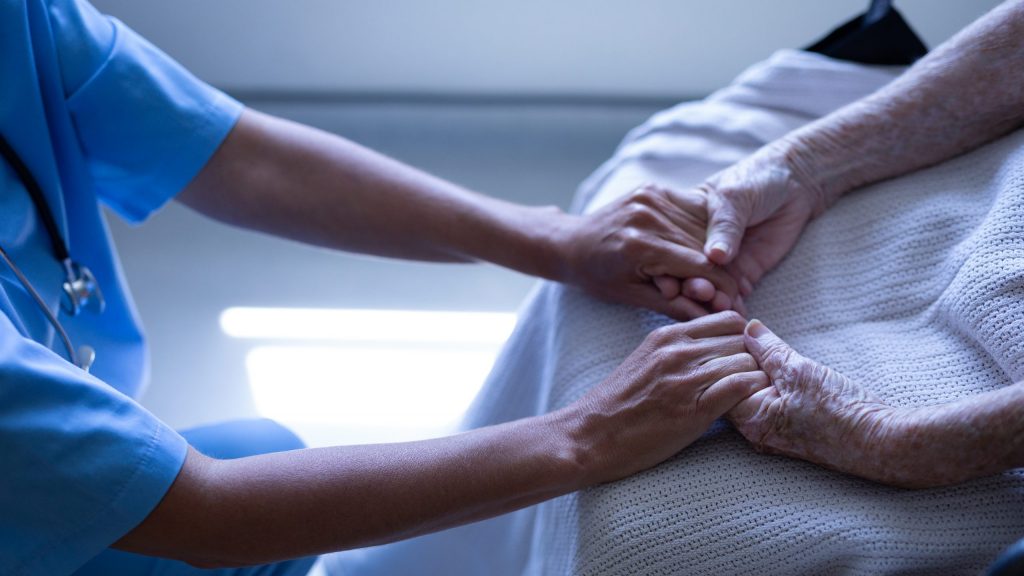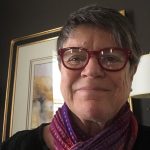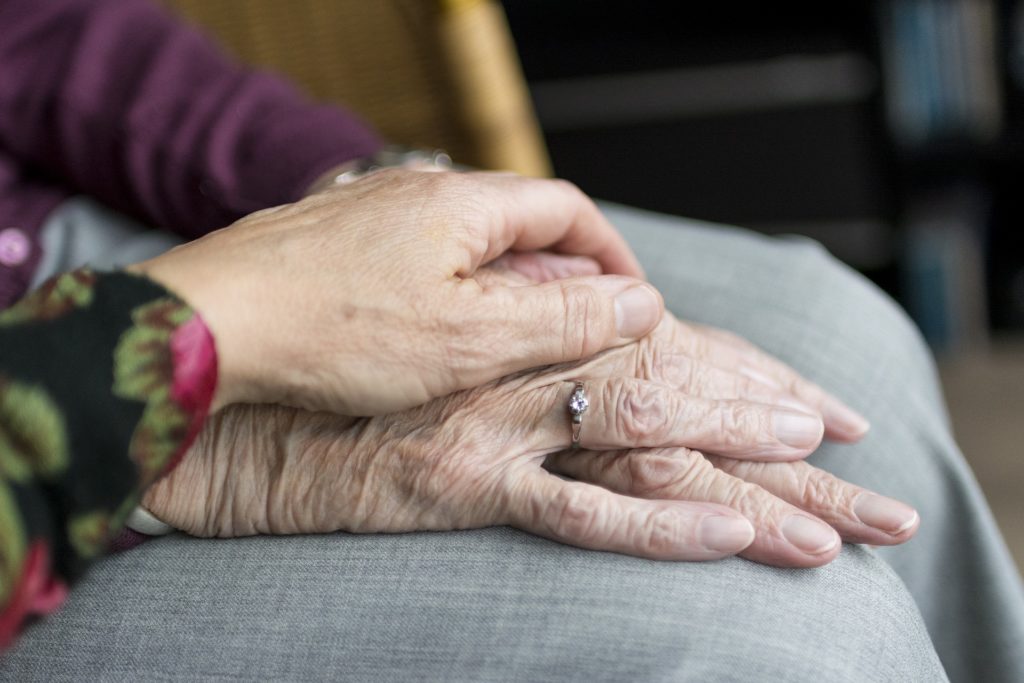
“End-of-life care on the patient’s terms”
The Assisted Dying Resource and Assessment Service team (ADRAS) at Hamilton Health Sciences (HHS) helps patients and their families on their journey with Medical Assistance in Dying (MAiD). MAiD is a medical procedure that involves the administration of medications to intentionally and safely end the life of an adult patient who consents to the procedure, and meets the federal government’s strict legal criteria. It has been offered at HHS for the past five years, when it became legal in Canada.
It is an intense and complex type of health care, one that is not for everyone. However, requests for MAiD are increasing across Canada and, as such, earlier this year, the federal government updated legislation. The law no longer requires a person’s natural death to be reasonably foreseeable. Read more about the changes here.
We asked some of the ADRAS health care providers to discuss what drew them to work in MAiD, what patients and families should know, and what the updated federal legislation means for the team and HHS. They call it deeply rewarding, nourishing to the soul, and a privilege to perform this kind of health care.

Dr. Patricia Smith
Dr. Patricia Smith, lead ADRAS physician, multiple HHS sites
What drew you towards becoming part of the ADRAS team?
When HHS was first considering bringing MAiD to the hospital, I participated in a focus group looking at how we might introduce the procedure. We discussed the teaching aspect, being respectful of and working with people with conscientious objections. They approached me and I said yes from the very beginning. Providing MAiD completely fits with my values hounouring individual autonomy and self determination.
“I do see it as a part of regular health care.”
How do you view MAiD as a form of health care?
I do see it as a part of regular health care. I see it as a possibility for people at end-of-life. I’m strongly committed to people having that option.
What keeps you motivated?
It’s really a privilege to do this work, to have patients and their families welcome me and our team into their lives when they are they are most vulnerable and suffering. ADRAS is also an amazing team to work with.
Samantha Jansen – MAiD Coordinator and Speech Language Pathologist, Hamilton General Hospital

Samantha Jansen
What drew you towards becoming involved in MAiD care?
I became involved from the inception of the team as the consulting speech language pathologist. When we knew the legislation was coming, I applied to the team because I thought people requesting MAiD could have communication and/or swallowing issues. I felt this vulnerable population should have their voices heard and wanted to support them. A couple of years after joining the MAiD team, I took on the role as MAiD coordinator.
What do you find the most challenging part about your role?
Even though MAiD has been around for five years, there are still quite a lot of myths, such as misunderstanding legislation and the rigourous assessment process that MAiD patients go through. There’s a defined set of legal criteria people have to meet in order to receive the procedure. As a speech-language pathologist, some of our more challenging cases have been with those who have communication difficulties. I have found these cases to be both rewarding and challenging to ensure the patient has their wishes heard.
“It’s important to understand that if people weren’t suffering – they wouldn’t want to die.”
What do you find most rewarding about this kind of care?
Our team is like no other. We really do function as an interdisciplinary model. Seeing patients who want to see us, want the service we’re providing – it’s surprisingly very rewarding.
What are some of the misconceptions you hear about MAiD?
One of the biggest misconceptions is that some people think patients have to choose either palliative care or MAiD. In fact, it’s not one or the other. A patient could be receiving palliative care for symptom management or other concerns, and go through the MAiD process at the same time. It’s really important people get the options they deserve and need to make an informed end-of-life decision.
It’s important to understand that if people weren’t suffering, they wouldn’t want to die. I feel people have trouble wrapping their head around why a person would want to die. It’s only because of their suffering, otherwise they would want to be here with us.

Taryn Riley
Taryn Riley – ADRAS Nurse, Clinical Leader of Medicine and Cardiac Care at Juravinski Hospital
Why did you become involved with MAiD?
I’m a registered nurse by background. Spending my bedside career in the Intensive Care Unit, I have seen a lot of death. It’s very different from MAiD. It can be messy at times resuscitating, providing CPR, or stopping care for a patient if their condition won’t improve. These are necessary and important aspects of quality care in hospital. The challenge here is, the decision is usually left up to family members and loved one. What’s so appealing about MAiD is that we can provide quality end-of-life care on the patient’s terms.
How do you think the updated federal legislation will impact MAiD for both HHS and patients?
I think it’s a very good step in the right direction in that it’s increasing access to care. Part of the legislation lays out that if a person is capable and consents to MAiD after being assessed by two physicians or nurse practitioners, they can still receive medically assisted death if they become incapable later. That’s monumental in assisted dying in general. Other countries that practice MAiD don’t have that kind practice in place. We’re really lucky here in Canada to allow patients to have that final wish if they deteriorate before their procedure.
“The pain that the general public has a hard time grasping is the pain they can’t see or feel.”
What are some of the misconceptions about MAiD?
There’s some misconceptions surrounding the suffering that makes people request MAiD. When you talk to the public about suffering, the first thing that comes to mind is physical pain. But it’s not always the type of pain patients are suffering from – there’s psychological pain, social pain: they can’t enjoy the foods they want to anymore, they can’t use the washroom on their own anymore. The pain that the general public has a hard time grasping is the pain they can’t see or feel. If we can help the public understand that part of suffering, I think more people would understand why this is such an important piece of someone’s journey.
Dr. Marianne Talman, ADRAS physician, General Internist, Hamilton General Hospital
How did you become involved with MAiD?
When the legislation for MAiD was first passed, I didn’t think I needed to know many details about it because I wasn’t planning on being directly involved. However, when a patient I was managing requested MAiD, I recognized my need to learn more about it. In addition to learning about the process and the requirements for a patient to receive MAiD, I learned much more about the many facets of suffering that people go through during the end stages of their lives. I ultimately was able to help this patient navigate through the MAiD process. The patient, as well as her friends and family were very grateful to the ADRAS team and the work that was down to advocate for the patient’s wishes. This experience made me realize that even though I have been involved with the dying process of many patients, it can be more patient-centered.
“I don’t think anyone should be judged for their decisions about end-of-life care.”
What are your thoughts on the updated legislation/opening up MAiD to a wider population?
I struggle with this. I will be leaning on the ADRAS team to help me. I’m well aware that I wouldn’t be asked to be involved with any case that I’m not comfortable with. Just like with my first case, I will need to continue to learn more about it. The ADRAS team has been a huge support for me.
What do you think people should know about the benefits of MAiD?
I want people to know it’s an option. I don’t think anyone should be judged for their decisions about end-of-life care. I think it is paternalistic for some people to think they should be deciding the way in which people die. Ultimately it should be that individual’s decision. To be able to be part of the experience of seeing patients die on their own terms is both very rewarding and a privilege.

